COVID-19
Florida surgeon general asks FDA for answers after study allegedly finds DNA fragments in COVID shots
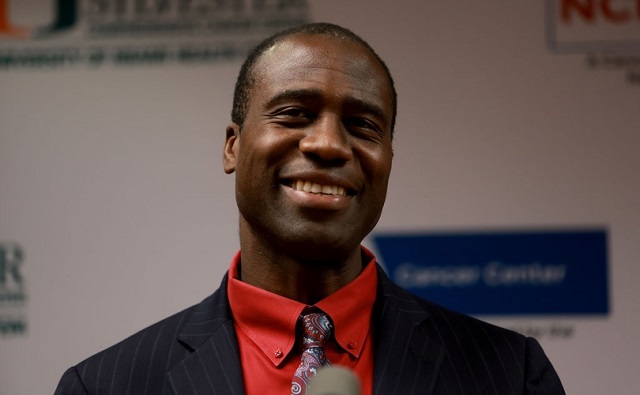
Florida’s Surgeon General Dr. Joseph Ladapo speaks during a press conference
From LifeSiteNews
‘The American people and the scientific community have a right to have all relevant information pertaining to the COVID-19 vaccines to properly inform individual decision making’
Florida Surgeon General Joseph Ladapo on Wednesday pushed the head of the FDA for answers regarding a preprint study that alleged the contamination of mRNA COVID-19 shots with plasmid DNA.
“The American people and the scientific community have a right to have all relevant information pertaining to the COVID-19 vaccines to properly inform individual decision making,” Dr. Ladapo wrote in the December 6 letter addressed to FDA Commissioner Robert M. Califf, MD, MACC.
On today's episode of: What the FDA… I asked @DrCaliff_FDA to address the DNA fragments detected in mRNA COVID shots & how they are hitchhiking into human cells. DNA integration into the human genome & oncogenesis are known risks, even acknowledged by @US_FDA in '07. pic.twitter.com/V7TBaeM1WN
— Joseph A. Ladapo, MD, PhD (@FLSurgeonGen) December 6, 2023
Ladapo, who has frequently resisted the prevailing narrative on COVID-19 vaccination — even warning young men not to get the shots at all — previously wrote to the CDC in May to share concerns about the safety and efficacy of the COVID-19 jabs, particularly in the context of their accelerated approval. He said he has not received a response to his inquiry.
In his December 6 letter to the FDA, the Sunshine State’s surgeon general wrote to share his concern about “the recent discovery of host cell DNA fragments within the Pfizer and Moderna COVID-19 mRNA vaccines. This raises concerns regarding the presence of nucleic acid contaminants in the approved Pfizer and Moderna COVID-19 mRNA vaccines.”
As LifeSiteNews reported in October, a new preprint study claimed to have discovered “significant levels” of “plasmid DNA” in expired COVID-19 vaccines, impurities the researchers say may be linked to adverse events. The study, which is not yet peer-reviewed, calls for “further investigation” to corroborate the findings.
Authors David J. Speicher, Jessica Rose, L. Maria Gutschi, David M. Wiseman, Ph.D., and Kevin McKernan said in the 31-page study they had found “billions to hundreds of billions of DNA molecules per dose” that they gathered from “[e]xpired unopened vials of Pfizer-BioNTech [shots] … and Moderna Spikevax mRNA” jabs “obtained from various pharmacies in Ontario, Canada.”
According to the researchers, the “preliminary evidence … warrant[s] confirmation and further investigation.”
An earlier preprint in June published by McKernan and his fellow researchers alleged that a fragment of a “monkey virus” genome, SV40, had been discovered in the COVID-19 jabs. The study noted that SV40 had previously been discovered in polio vaccines in the 1950s and 1960s and was linked to cancer. However, Health Feedback has noted that the DNA found in the COVID jabs was only a “fragment” of that genome, and that it’s unclear whether SV40 causes cancer in humans (current research only supports risk of cancer in certain animals), LifeSiteNews previously reported.
Moreover, the polio jabs became contaminated due to the use of monkey kidney cells to grow the virus, per Health Feedback. Those cell cultures were not used in the making of the COVID shots, making it unclear how the SV40 contaminants got into the injections to begin with.
In Ladapo’s letter to the FDA, he cited 2007 guidance from the FDA itself that, he stated, raised the possibility that “DNA integration could theoretically impact a human’s oncogenes – the genes which can transform a healthy cell into a cancerous cell,” and could therefore “result in chromosomal instability.”
“The Guidance for Industry discusses biodistribution of DNA vaccines and how such integration could affect unintended parts of the body including blood, heart, brain, liver, kidney, bone marrow, ovaries/testes, lung, draining lymph nodes, spleen, the site of administration and subcutis at injection site,” he summarized.
RELATED: Florida surgeon general Joseph Ladapo warns against taking new COVID-19 shots
After laying out the guidance from the FDA on the potential risks of DNA contamination, Ladapo asked the agency to answer whether manufacturers of the drugs have “evaluated the risk of human genome integration or mutagenesis of residual DNA contaminants from the mRNA COVID-19 vaccines alongside the additional risk of DNA integration from the lipid nanoparticle delivery system and SV40 promoter/enhancer?”
“Has [the] FDA inquired any information from the drug manufacturers to investigate such risk?” he asked.
Ladapo also asked whether “FDA standards for acceptable and safe quantity of residual DNA (present as known contaminants in biological therapies) consider the lipid nanoparticle delivery system for the mRNA COVID-19 vaccines?” Pfizer and Moderna’s COVID-19 jabs contain lipid nanoparticles (LNPs), which are “tiny balls of fat” that act as delivery mechanisms for the mRNA vaccine.
Florida’s surgeon general further inquired whether, given “the potentially wide biodistribution of mRNA COVID-19 vaccines and DNA contaminants beyond the local injection site,” the FDA has “evaluated the risk of DNA integration in reproductive cells with respect to the lipid nanoparticle delivery system?”
Citing “the urgency of these questions due to the mass administration of these vaccines and currently unavailable data surrounding possible genomic effects,” Ladapo closed his letter by asking the FDA to respond to his questions in one week’s time (December 13) by sending a written response to both his “previous letter and the concerns I have outlined above.”
Dr. Ladapo, who earned his MD from Harvard Medical School and his Ph.D. from Harvard University, was appointed to lead Florida’s health department by Florida Republican Gov. Ron DeSantis in 2021. He quickly made a name for himself as something of a maverick among state health department officials for his resistance to the prevailing COVID-19 narrative, and he has consistently and publicly spoken out against COVID-19 jabs, lockdowns, and mask mandates.
COVID-19
COVID Lab Leak: Over four later, EcoHealth Alliance funding is finally suspended

From Heartland Daily News
Thursday, May 16, 2024
Federal Funding Stripped From Nonprofit at Center of COVID Lab Leak Controversy
Today, the Biden administration suspended federal funding to the scientific nonprofit whose research is at the center of credible theories that the COVID-19 pandemic was started via a lab leak at the Wuhan Institute of Virology.
This morning, the U.S. Department of Health and Human Services (HHS) announced that it was immediately suspending three grants provided to the New York-based nonprofit EcoHealth Alliance (EHA) as it starts the process of debarring the organization from receiving any federal funds.
“The immediate suspension of [EcoHealth Alliance] is necessary to protect the public interest and due to a cause of so serious or compelling a nature that it affects EHA’s present responsibility,” wrote HHS Deputy Secretary for Acquisitions Henrietta Brisbon in a memorandum signed this morning.
For years now, EcoHealth has generated immense controversy for its use of federal grant money to support gain-of-function research on bat coronaviruses at the Wuhan lab.
In a memo justifying its funding suspension, HHS said that EcoHealth had failed to properly monitor the work it was supporting at Wuhan. It also failed to properly report on the results of experiments showing that the hybrid viruses it was creating there had an improved ability to infect human cells.
Congressional Republicans leading an investigation into EcoHealth’s research in Wuhan, and the role it may have played in starting the pandemic via a lab leak, cheered HHS’s decision.
“EcoHealth facilitated gain-of-function research in Wuhan, China without proper oversight, willingly violated multiple requirements of its multimillion-dollar National Institutes of Health [NIH] grant, and apparently made false statements to the NIH,” said Rep. Brad Wenstrup (R–Ohio), chair of the House’s Select Subcommittee on the Coronavirus Pandemic in a statement. “These actions are wholly abhorrent, indefensible, and must be addressed with swift action.”
Beginning in 2014, EcoHealth received a grant from NIH’s National Institute of Allergies and Infectious Diseases (NIAID) to study bat coronavirus in China. Its initial scope of work involved collecting and cataloging viruses in the wild and studying them in the lab to spot which ones might be primed to “spillover” into humans and cause a pandemic.
Soon enough, EcoHealth used some of the viruses they’d collected to create “chimeric” or hybrid viruses that might be better able to infect human lung cells in genetically engineered (humanized) mice.
This so-called “gain-of-function” research has long been controversial for its potential to create deadly pandemic pathogens. In 2014, the Obama administration paused federal funding of gain-of-function research that might turn SARS, MERS, or flu viruses into more transmissible respiratory diseases in mammals.
In 2016, NIH flagged EcoHealth’s work as likely violating the 2014 pause.
EcoHealth President Peter Daszak argued to NIH at the time that the viruses his outfit was creating had not been proven to infect human cells and were genetically different enough from past pandemic viruses that they didn’t fall under the Obama administration pause.
NIH accepted this argument under the condition that EcoHealth immediately stop its work and notify the agency if any of its hybrid viruses did show increased viral growth in humanized mice.
But when these hybrid viruses did show increased viral growth in mice, EcoHealth did not immediately stop work or notify NIH. It instead waited until it submitted an annual progress report in 2018 to disclose the results of its experiments.
A second progress report that EcoHealth submitted in 2021, two years after its due date, also showed its hybrid viruses were demonstrating increased viral growth and enhanced lethality in humanized mice.
In testimony to the House’s coronavirus subcommittee earlier this month, Daszak claimed that EcoHealth attempted to report the results of its gain-of-function experiments on time in 2019, but was frozen out of NIH’s reporting system.
The HHS memo released today says a forensic investigation found no evidence that EcoHealth was locked out of NIH’s reporting system. The department also said that EcoHealth had failed to produce requested lab notes and other materials from the Wuhan lab detailing the work being done there and the lab’s biosafety conditions.
These all amount to violations of EcoHealth’s grant agreement and NIH grant policy, thus warranting debarment from future federal funds, reads the HHS memo.
That EcoHealth would be stripped of its federal funding shouldn’t come as too great a shock to anyone who watched Daszak’s congressional testimony from earlier this month. Even Democrats on the committee openly accused Daszak of being misleading about EcoHealth’s work and manipulating facts.
Rep. Raul Ruiz (D–Calif.), the ranking Democrat on the House’s coronavirus subcommittee, welcomed EcoHealth’s suspension, saying in a press release that the nonprofit failed its “obligation to meet the utmost standards of transparency and accountability to the American public.”
An HHS Office of the Inspector General report from last year had already found that EcoHealth had failed to submit progress reports on time or effectively monitor its subgrantee, the Wuhan Institute of Virology.
When grilling Daszak, Democrats on the Coronavirus Subcommittee went to great lengths to not criticize NIH’s oversight of EcoHealth’s work. The HHS debarment memo likewise focuses only on EcoHealth’s failures to abide by NIH policy and its grant conditions.
Nevertheless, it seems pretty obvious that NIH was failing to abide by the 2014 pause on gain-of-function funding when it allowed EcoHealth to go ahead with creating hybrid coronaviruses under the condition that they stop if the viruses did prove more virulent.
NIH compounded that oversight failure by not stopping EcoHealth’s funding when the nonprofit did, in fact, create more virulent viruses, and not following up on a never-submitted progress report detailing more gain-of-function research until two years later.
The House Subcommittee’s investigation into NIH’s role in gain-of-function research at the Wuhan lab is ongoing. Tomorrow it will interview NIH Principal Deputy Director Lawerence Tabak. In June, it will interview former NIAID Director Anthony Fauci.
Originally published by Reason Foundation. Republished with permission.
COVID-19
Elon Musk-backed doctor critical of COVID response vows appeal after court sides with medical board
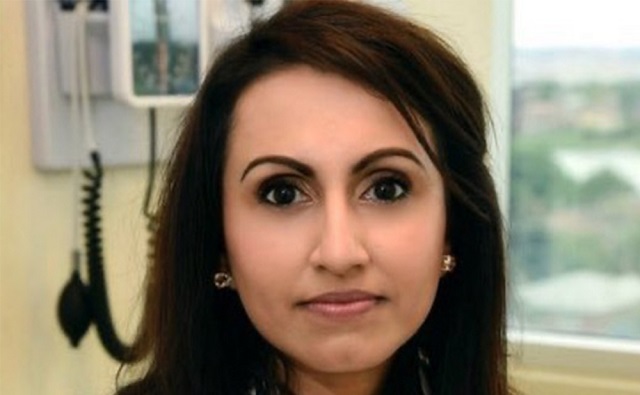
From LifeSiteNews
One of Gill’s “controversial” posts read, “If you have not yet figured out that we don’t need a vaccine, you are not paying attention. ”
A Canadian physician who challenged her medical regulator after it placed “cautions” against her for speaking out against draconian COVID mandates on social media has lost a court battle, but with the help of her Elon Musk-backed legal team she has vowed to appeal the ruling.
The case concerns Dr. Kulvinder Kaur Gill, an Ontario pediatrician who has been embroiled in a legal battle with the College of Physicians and Surgeons of Ontario (CPSO) for her anti-COVID views posted on X (formerly Twitter) in 2020. As reported by LifeSiteNews, her case received the support of billionaire Tesla and X owner Elon Musk, who pledged in March to back her financially.
One of Gill’s “controversial” posts read, “If you have not yet figured out that we don’t need a vaccine, you are not paying attention. #FactsNotFear.”
The Divisional Court decision against Gill dated May 7, 2024, concluded, “When the College chose to draw the line at those tweets which it found contained misinformation, it did so in a way which reasonably balanced Dr. Gill’s free speech rights with her professional responsibilities.”
“In other words, its response was proportionate,” noted the ruling.
Gill’s lawyer, Lisa Bildy with Libertas Law, stated in a press release sent to LifeSiteNews that the “Court declined to quash the ‘cautions’ orders, finding that the ‘screening committee’ of the CPSO was sufficiently alert to the Charter infringement of Dr. Gill’s speech, such that its decisions were within the range of reasonable outcomes.”
“Dr. Gill had argued, in two factums,” noted Bildy, which can be found here and here , and filed in the companion court applications, that “her statements were not ‘verifiably false.’”
Bildy expressed that Gill had provided the College with “ample evidence in 2020 to support her position against lockdowns,” but was sanctioned “because they went against the College’s guidance that doctors should not express opinions contradicting government or its public health edicts.”
Gill’s court challenge against the CPSO began last month, with Bildy writing at the time that the College’s “decisions were neither reasonable nor justified and they failed to engage with the central issues for which Dr. Gill was being cautioned.”
She argued that Gill had a “reasonable scientific basis” for her posts, noting that the previous decision made against Gill targeted her for opposing the mainstream COVID narrative.
“The decision starts with the premise that doctors have to comply,” said Bildy, warning that censoring doctors would have a “chilling effect” on free speech.
Bildy noted that in its ruling, the court “disagreed” with Gill’s challenge, “stating that this invited a reweighing of the evidence.”
The court also ordered that Gill pay the CPSO $6,000 in legal costs.
Gill is a specialist practicing in the Greater Toronto area, and has extensive experience and training in “pediatrics, and allergy and clinical immunology, including scientific research in microbiology, virology and vaccinology.”
Last September, disciplinary proceedings against her were withdrawn by the CPSO. However, last year, Gill was ordered to pay $1 million in legal costs after her libel suit was struck down.
The CPSO began disciplinary investigations against Gill in August 2020.
Gill to appeal recent court ruling with support from Musk’s X
The court’s ruling asserted that the CPSO panel members consisted of “three physicians with highly relevant expertise that they were able to bring to bear when assessing the scientific and medical information before them, expertise that this court does not have.”
Bildy noted that in fact, the CPSO panel consisted of “three surgeons and a general member of the public who had deferred to the ‘expertise’ of government’s public health arm.”
The court ruling also dismissed Gill’s arguments that publishing the “cautions on her public register and disseminating a notice about the cautions to hospitals and regulators across the continent was punitive and had a chilling effect on one side of a debate.”
“The Court opted to align with other Divisional Court decisions in stating that the cautions were not a finding of professional misconduct but were merely a remedial measure. This is despite the fact that cautions have, only in recent years, become a public rebuke rather than a private ‘correction’ of a professional by their peers. This significant change has not yet been grappled with by the Ontario Court of Appeal,” noted Bildy.
Bildy said that Gill intends to “seek leave to appeal to the Ontario Court of Appeal with the support of X Corp., since her posts were made on the X platform which supports free expression and dialogue, even on contentious issues and particularly on matters of scientific and medical importance.”
Gill noted on X Tuesday that her “notice of motion for leave to appeal will be filed” next week “to begin process.”
She also thanked Musk and X for supporting her legal cause.
Gill had said that she had “suddenly” found herself going “against the narrative,” and was then “seen as a black sheep and as someone who should be shunned.”
Many Canadian doctors who spoke out against COVID mandates and the experimental mRNA injections have been censured by their medical boards.
Earlier this month, Elon Musk’s X announced that it will fund the legal battle for another Canadian doctor critical of COVID lockdowns, Dr. Matthew Strauss, an Ontario critical care physician and professor, against his former employer Queen’s University after it forced him to resign.
In an interview with LifeSiteNews at its annual general meeting in July 2023 near Toronto, canceled doctors Mary O’Connor, Mark Trozzi, Chris Shoemaker, and Byram Bridle were asked to state their messages to the medical community regarding how they have had to fight censure because they have opinions contrary to the COVID mainstream narrative.
-
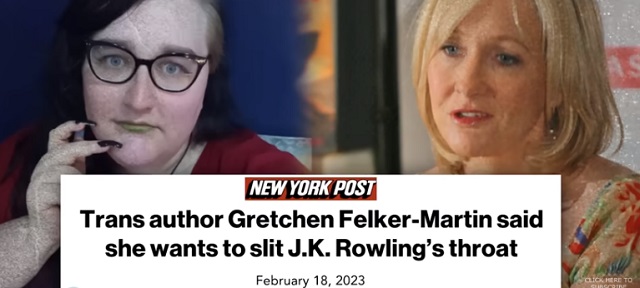
 John Stossel2 days ago
John Stossel2 days agoProtecting Free Speech: The Early Warning Signs From Around The World
-

 armed forces2 days ago
armed forces2 days agoTrudeau government has spent $10 million promoting DEI in the military as recruitment flounders
-

 COVID-191 day ago
COVID-191 day agoJapan’s most senior cancer doctor: COVID shots are ‘essentially murder’
-
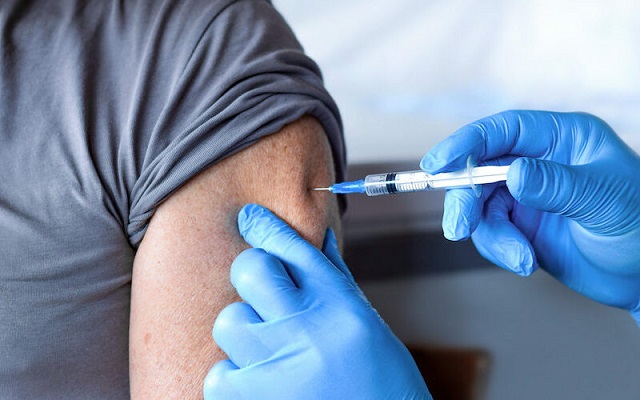
 COVID-192 days ago
COVID-192 days agoTrudeau’s public health agency recommends another experimental COVID booster
-
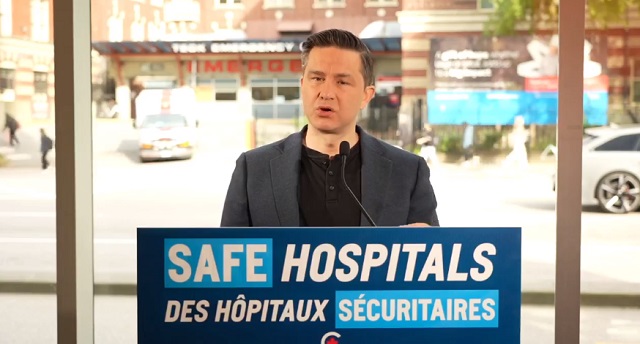
 Addictions2 days ago
Addictions2 days agoPoilievre attacks decriminalization of hard drugs with Safe Hospitals Act
-

 Uncategorized2 days ago
Uncategorized2 days agoRCMP recruitment failure has Alberta advocacy group calling for Provincial Police Service
-

 RCMP2 days ago
RCMP2 days agoRed Deer RCMP use drone to find assault suspect in wooded area
-

 Alberta2 days ago
Alberta2 days agoProvince announces next step to revamped health care system







